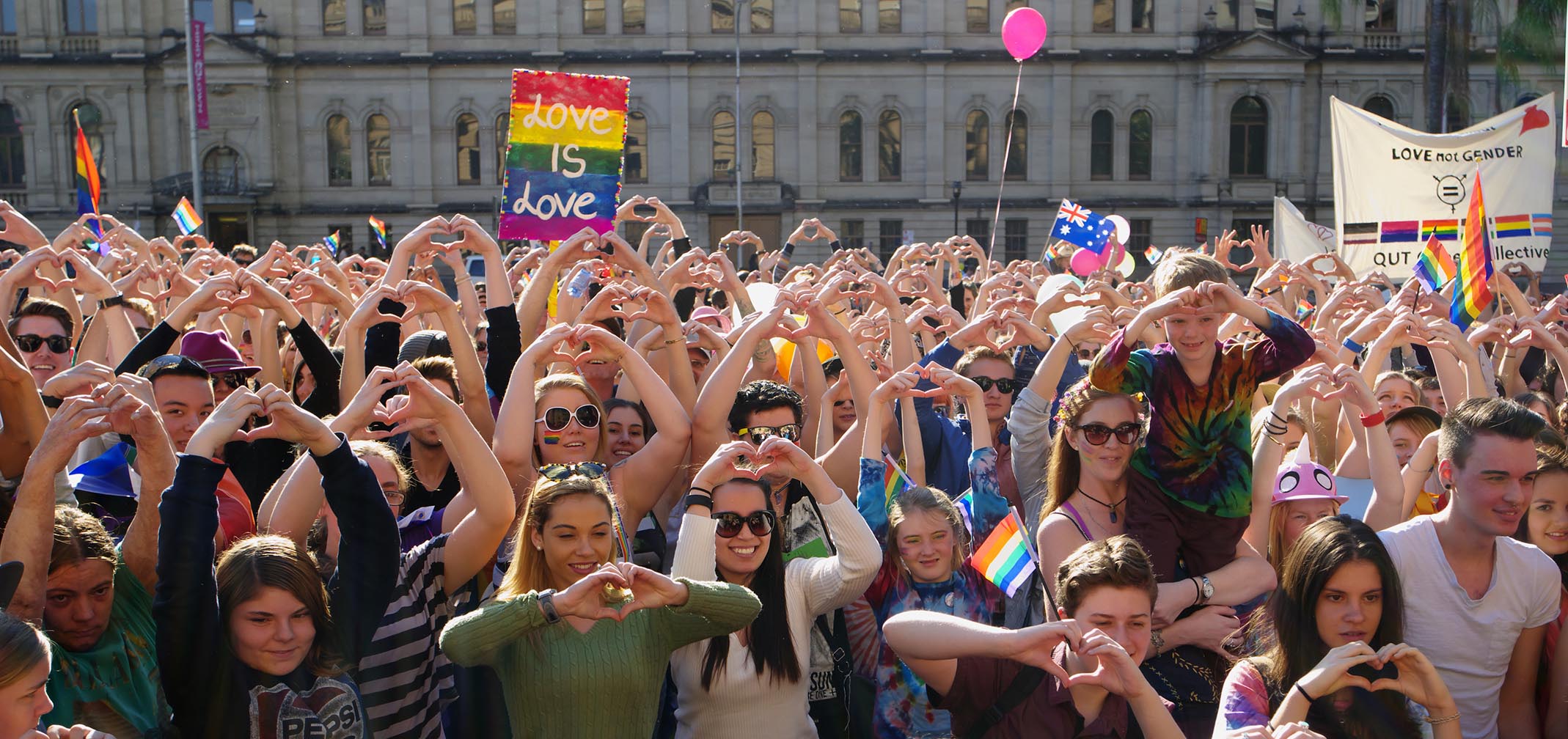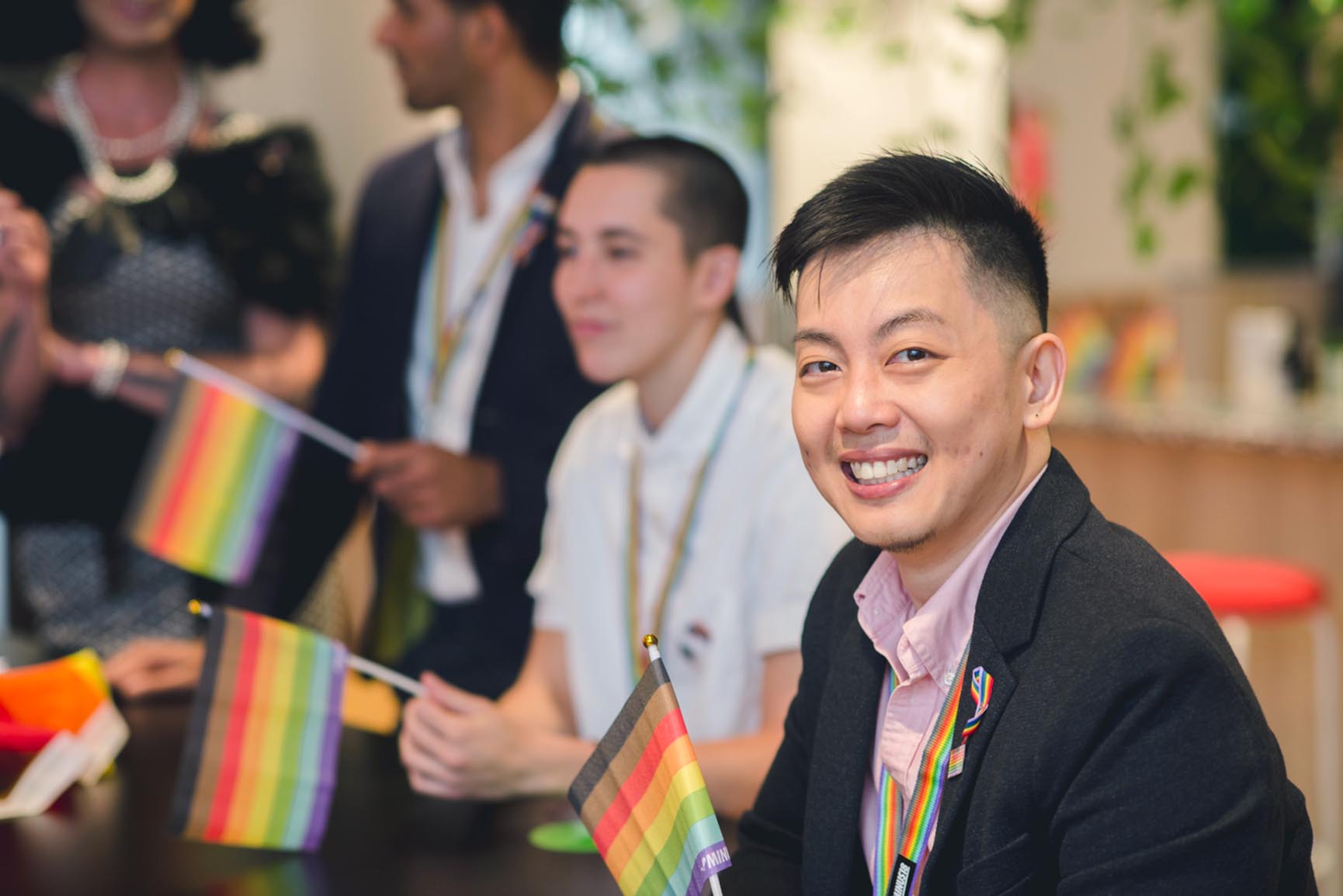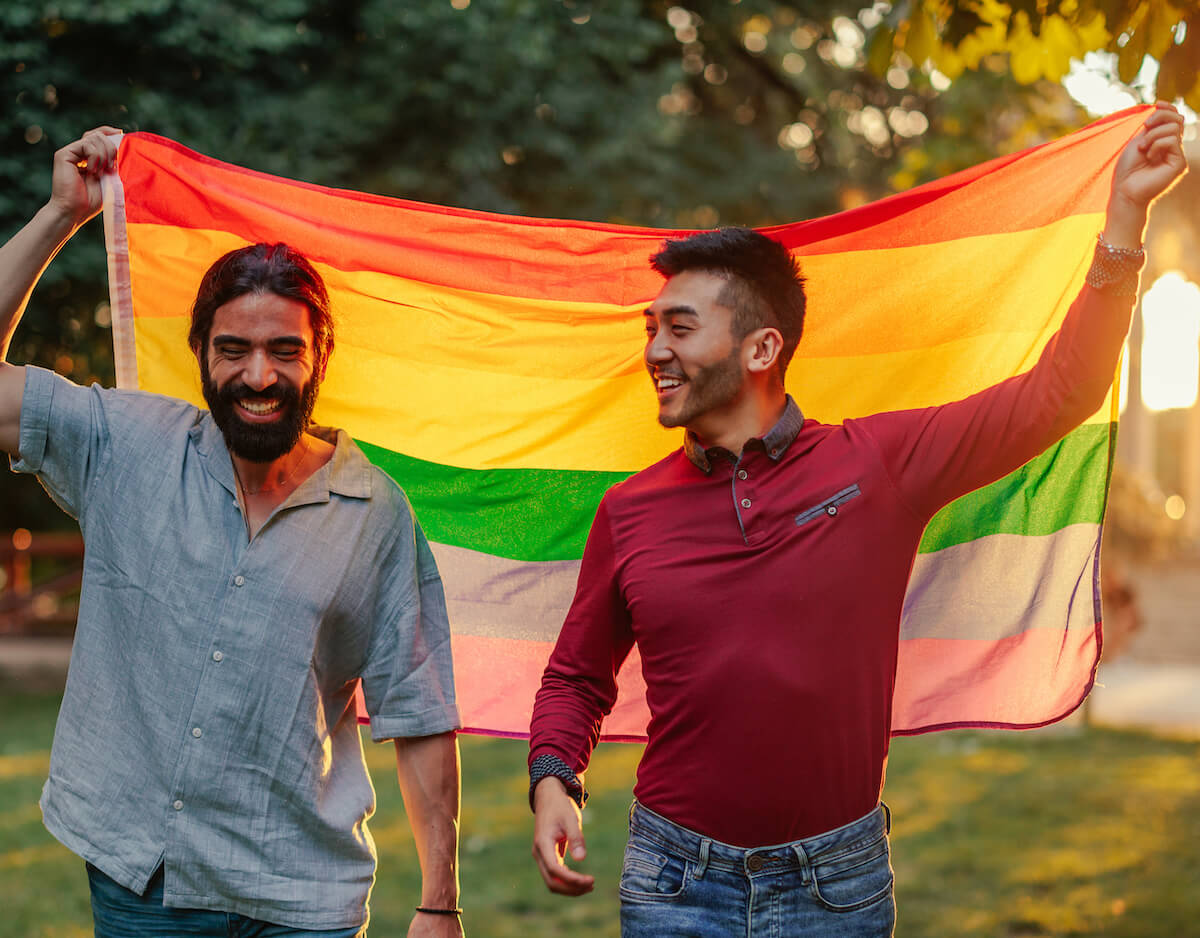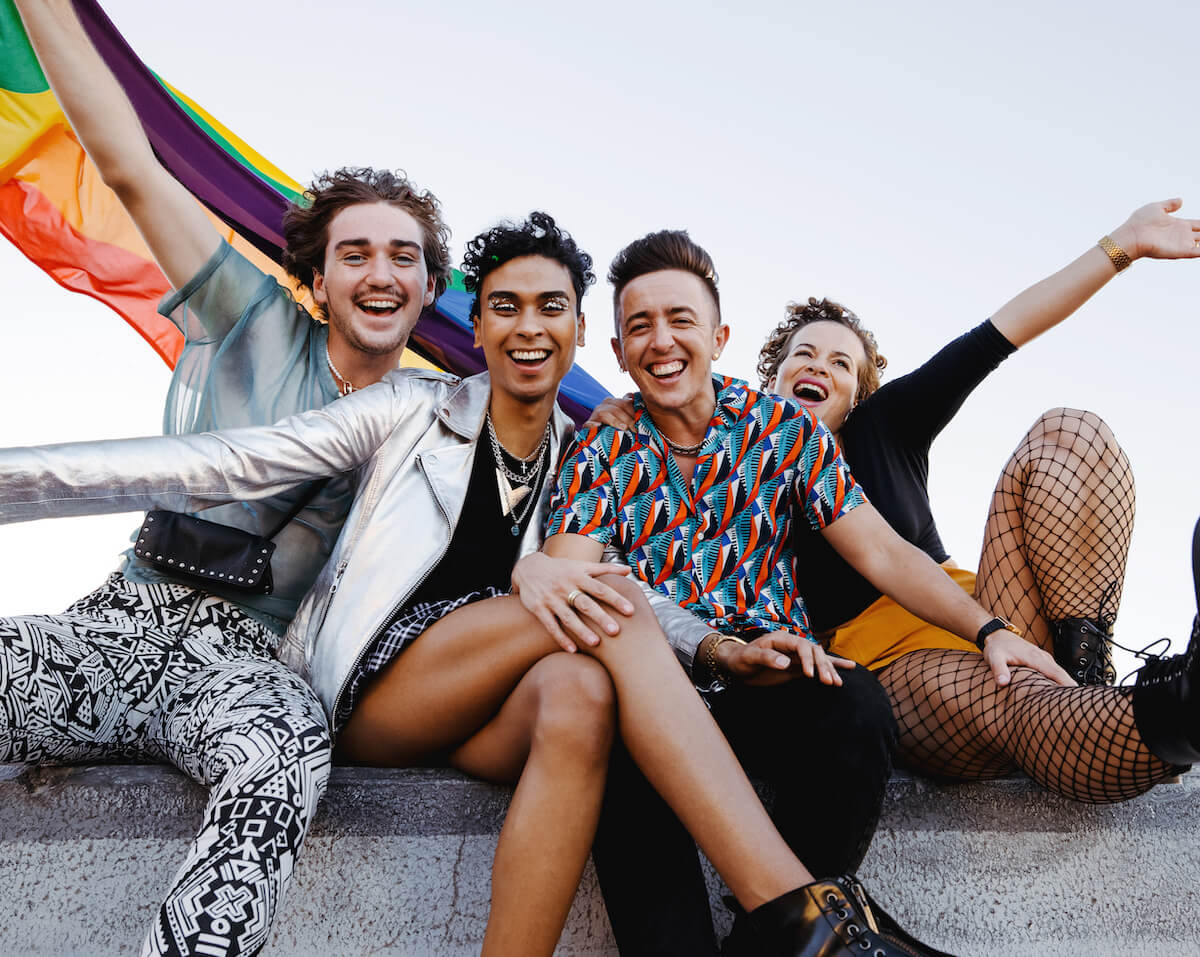
What to Talk About on IDAHOBIT
September 01, 2022
IDAHOBIT, held every year on May 17, is a day to raise awareness for the high rates of discrimination LGBTQIA+ people still face today. One of the best ways to do this is to host discussions, share resources, and bring visibility to these topics.
An easy way to do this is to post on social media, to share a message of LGBTQIA+ inclusion. Check out our LGBTQIA+ allyship resources, identity fact sheets, or even our shareable resources and social media content.
And if you're going rainbow and you're looking for topics to explore or conversations to have, there's no shortage. We've compiled five of our favourite (and most popular IDAHOBIT topics to get you started.

1. What is IDAHOBIT?
IDAHOBIT is the anniversary of May 17, 1990, when the World Health Organisation removed homosexuality from the Classification of Diseases. While we celebrate this milestone and other advancements in LGBTQIA+ equality, the unfortunate reality is that these are all too-recent in our history:
The first Mardi Gras pride march was held in Sydney in 1978, which was met with violence from police. Those who marched were beaten inside police cells and had their names published by the Sydney Morning Herald.
Tasmania was the last jurisdiction in Australia to decriminalise homosexuality in May 1997. The majority of Australians today were alive during a time when it was illegal to be gay.
The Marriage Equality plebiscite was held in 2017. While marriage equality was passed, 38.4% of Australians who voted (4.8 million people) voted against it.
The first IDAHOBIT was held in 2005 and is today acknowledged by millions of people globally. While IDAHOBIT has evolved over these years, the purpose remains the same: to celebrate the progress we have made, while also raising awareness for the discrimination that LGBTQIA+ people still face today.

2. Why is IDAHOBIT Important Today?
Despite the progress that has been made, the LGBTQIA+ human rights movement is relatively recent. This means that stigma and discrimination are unfortunately still prevelant across the world.
This is also true in Australia, where:
68% of LGBTQIA+ employees are not out to everyone at work (1)
2 in 3 LGBTQIA+ youth experience abuse due to their identity (2)
35% of LGBTQIA+ Australians have experienced verbal abuse in the past 12 months (3)
While experiences of discrimination most commonly occur in public and at work, there are also many instances where inequality and discrimination are still protected by government. In Australia:
- LGBTQIA+ people can be discriminated against by religious organisations, including LGBTQIA+ teachers and students being expelled from religious schools.
- Many intersex people experience medical procedures performed on their bodies that modify their sex characteristics without their consent.
- LGBTQIA+ people are not adequately included in the census and other government research. This results in less data.
- Trans and gender diverse people in most states experience harsh and unnecessary barriers to updating their birth certificates, and therefore other legal documents.
These are just some of the issues LGBTQIA+ people face in Australia today. An up-to-date list can be found via Equality Australia.
3. What Does it Mean to be LGBTQIA+?
When we explore the acronym LGBTQIA+ (short for Lesbian, Gay, Bisexual, Transgender, Queer, Intersex plus more), it means we explore the unique identities and experiences found within it.
Listening to the stories and experiences directly from LGBTQIA+ people can bring the themes of IDAHOBIT to life in a way that’s engaging and relatable. Some identities are not as visible as others, and you may find sharing stories from those who are intersex, transgender or bisexual provides new insights to your cohort.
If you feel as though your cohort is already quite knowledgeable about LGBTQIA+ identities, you can focus on the experiences of those from intersecting backgrounds. You could explore the experiences of LGBTQIA+ people who are:
- Living, or grew up in, regional or rural areas
- Living with a disability
- Aboriginal or Torres Strait Islander
- From a diverse perspective of ages
- Living with HIV
- Neurodivergent
- From a diverse cultural of faith background
You might choose to talk about all of these identities, or pick just a few to explore in more depth (while choosing different identities to explore in future years). Guest speakers who are paid for sharing their lived experience are one of the more engaging options, but it's not the only one. Showing videos and sharing articles are also great options.
You can learn more about LGBTQIA+ identities and discrimination here and explore various people and stories here.
4. How Can We Support LGBTQIA+ People?
IDAHOBIT is a great opportunity to learn and implement ongoing LGBTQIA+ inclusion in your day-to-day activities. There are a number of ways you can start this conversation, including through lunch and learn-style events, panel discussions, guest speakers, facilitated planning or guided professional training. Here are some topics you might like to explore:
Resources
Coming Out - How to offer assistance and how to respond to someone who has just come out.
Pronouns - Learning what pronouns are, and why they are important in professional contexts.
Allyship - Practical ways to building LGBTQIA+ inclusion in everyday life.
Discussion Topics
- What are some practical ways we can create a positive environment for LGBTQIA+ people?
- What are we doing as a team to maintain a regular rhythm of staying up to date on LGBTQIA+ inclusion?
- Why is it important to visibly demonstrate LGBTQIA+ inclusion? What are some ways we can do that during IDAHOBIT and throughout the year?
- How can we listen to and share the experiences of LGBTQIA+ people through our own work?
- How are we as a group working to empower the work of organisations who are working to build LGBTQIA+ inclusion in the community?
You don’t have to have these conversations alone
Learning directly from LGBTQIA+ people is a powerful way to start these conversations, and trained facilitators and speakers can guide you and your team through them in a way that’s engaging and safe.
Sources:
- Out at Work (2018) Diversity Council of Australia
- Writing Themselves in 4 (2021) La Trobe University
- Private Lives 3 (2021) La Trobe University
Related Articles

Make your workplace IDAHOBIT activities a success through visibility, events and ongoing inclusion.

Forge your own path, and use IDAHOBIT to host a fundraiser or awareness activity by yourself.

It's easy to make an impact with your friends or family on IDAHOBIT

It's super easy to start building LGBTQIA+ inclusion on May 17 in the classroom, with your GSA, or as an entire school.